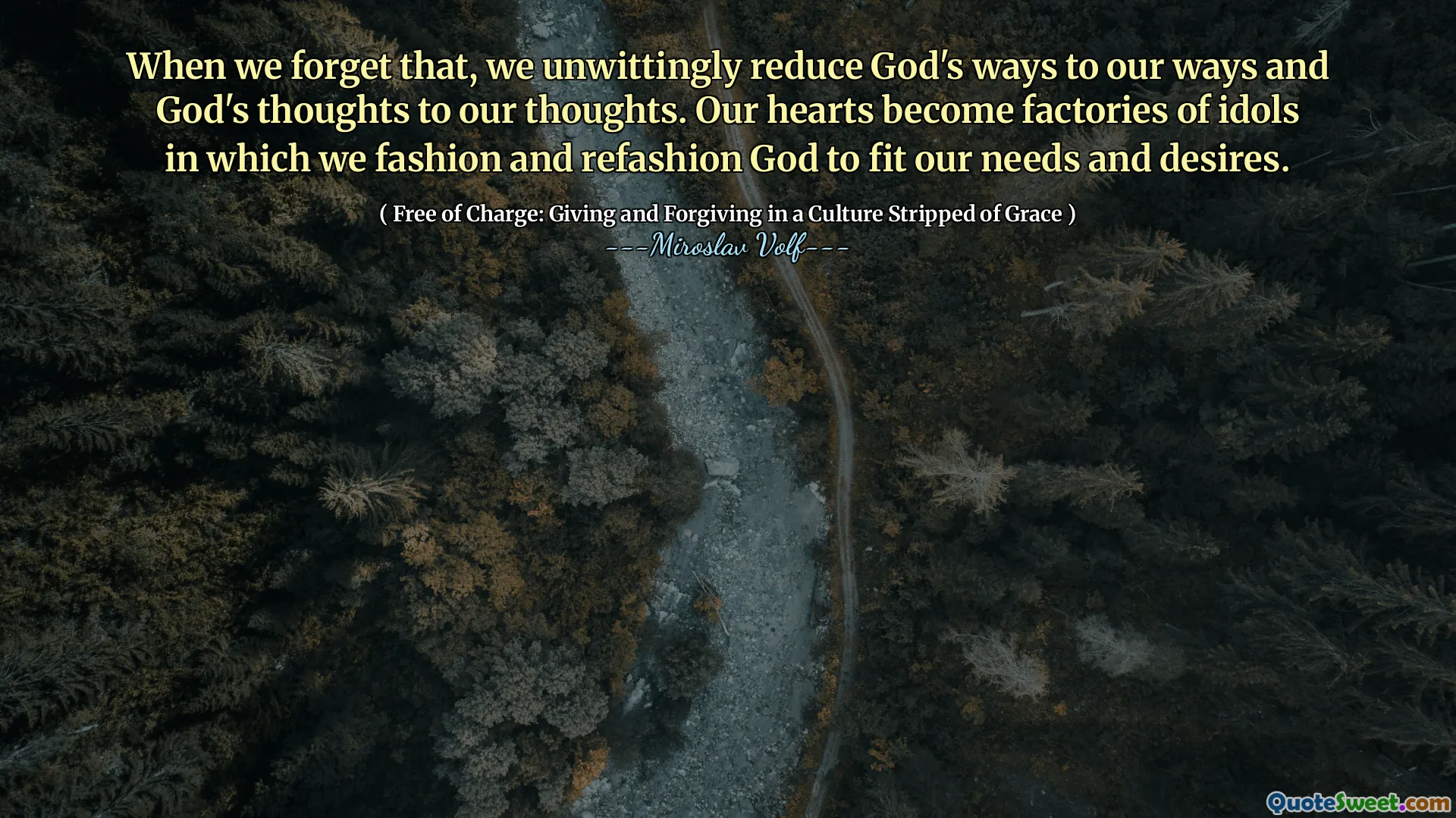
When we forget that, we unwittingly reduce God's ways to our ways and God's thoughts to our thoughts. Our hearts become factories of idols in which we fashion and refashion God to fit our needs and desires.
The quote reflects on the tendency of humans to limit their understanding of God by projecting their own thoughts and desires onto Him. When we forget the vastness of God's ways and thoughts, we create a distorted image of Him, often tailored to our personal wants. This can lead us to craft idols that represent a version of God that serves our purposes rather than acknowledging His true nature.
This tendency can severely impact our spiritual lives, as we may begin to see God not for who He is, but as a reflection of our own desires. The process of trying to fit God into our own limited framework ultimately diminishes His grandeur and holiness, turning the divine into merely an extension of our own identities. Volf urges readers to recognize and resist this impulse, encouraging a deeper understanding of God's grace and love.





